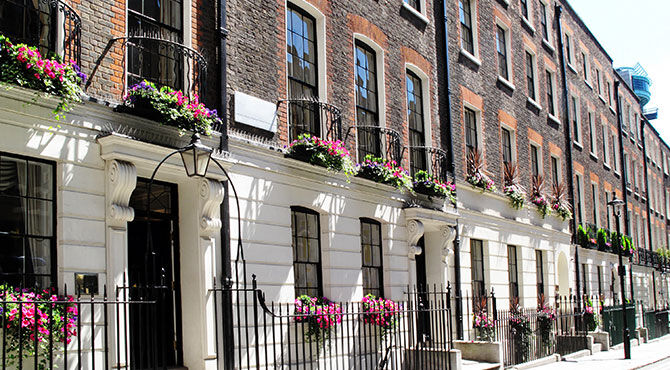Few houses on market as SE England drags down price growth
A report by the RICS shows house prices in the UK continuing to slow down. London, South East England and East Anglia have had a significant impact on the national outlook.

Pessimism for the market in the next year
Most RICS members questioned in the survey were pessimistic over market prospects for the next 12 months with some 44 per cent blaming political uncertainty since the election as the main factor.“The latest results demonstrate the danger, however tempting, of talking about a single housing market across the country. RICS indicators particularly regarding the price trend are pointing towards an increasingly divergent picture,” said Simon Rubinsohn, RICS chief economist.“High-end prime properties may be seeing prices slipping back but, for good or ill, prices are continuing to move higher in many other segments of the market. Indeed, the disaggregated data suggests that this will continue to be the case over the coming months.“Perhaps not surprisingly in the current environment, the term ‘uncertainty’ is featuring more heavily in the feedback we are receiving. This seems to be exerting itself on transaction levels which are flat-lining and may continue to do so for a while particularly given ongoing challenge presented by the low level of stock on the market.”Related stories:
- Surveyors expect housing market to remain flat over summer
- UK house prices 'rising at slowest rate since 2013'
- UK property prices bounce back to new high
Samuel Tombs, an economist at Pantheon Macroeconomics, commented that activity in the housing market was “declining rapidly, with no immediate end in sight” at a time of an intensifying squeeze on real wages and high rates of stamp duty.“With inflation on course to outpace wage growth for another year and Brexit negotiations likely to go down to the wire, the housing market likely will languish in its torpid state for some time, undermining households’ confidence and big-ticket purchases,” he said.
Housing market remaining robust
Jeremy Duncombe, director of the Legal & General Mortgage Club, said the pessimistic results were not surprising given recent trends. “Yet when compared to the wider economic and political landscape, the housing market has continued to amaze many. It has remained consistently robust, despite everything we have seen over the last 12 to 18 months,” he said.“In light of this, there is nothing to suggest that the market is in dire straits. The northern hotspots of Manchester, Leeds and Birmingham are continuing to see strong price growth and first-time buyers levels are up by 10 per cent year-on-year – nearly doubling from the market low in 2009. A flattening in London is also not necessarily a bad thing, as the North/South divide begins to even out.”For related news and features, visit our Residential Property section.Access hundreds of global services and suppliers in our Online Directory

Get access to our free Global Mobility Toolkit

©2026 Re:locate magazine, published by Profile Locations, Spray Hill, Hastings Road, Lamberhurst, Kent TN3 8JB. All rights reserved. This publication (or any part thereof) may not be reproduced in any form without the prior written permission of Profile Locations. Profile Locations accepts no liability for the accuracy of the contents or any opinions expressed herein.






























